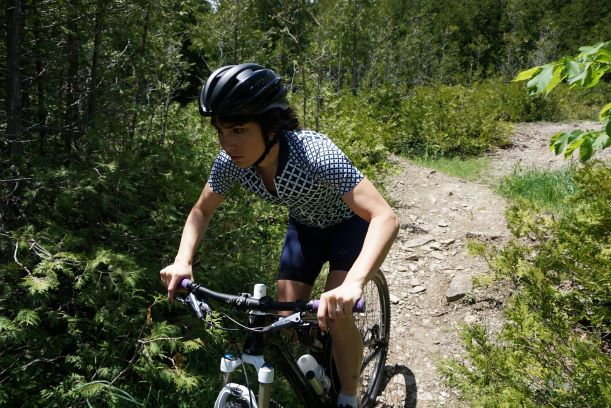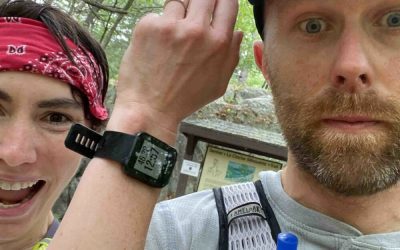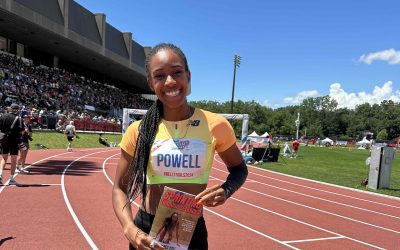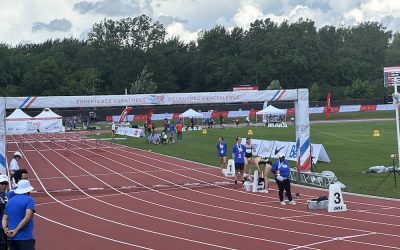We’ve been talking a lot on the podcast lately about identity as an athlete, topics like RED-S and racing weight, and how to be the happiest, speediest version of yourself—and I’ve talked a bit about my own personal takes on it, but I haven’t ever really written about it on here, so it felt like it was time for some real talk. So… I’ve never been a fan of the scale. I’ve never been able to weigh in regularly, or stick to using a tape measure, calorie counter, or any type of tracker like that.
And yet, over the last two decades, I would say 90% of the time, I’ve wanted to “lose 5/8/10 pounds.” This had nothing to do with my training or racing, and everything to do with how I felt/feel like I don’t look like an athlete.
Just about every athlete I’ve known has said this at some time or another.
And I’ve been lucky, I’ll admit. I’ve never fallen so deep into these feelings that I started crash dieting. Looking back, there were certainly periods of low energy availability punctuated by overtraining (courtesy of a coach who didn’t know much about nutrition but had no problems recommending extreme caloric restrictions, and courtesy of an extremely unhealthy version of a vegan diet). But I never really hit a point where I was in any kind of danger zone—my body REALLY likes muscle, and REALLY hates not eating. Its reaction to chronic overtraining and under-fueling has tended towards holding on to weight, so ironically, at my highest volume/lowest caloric intake, I was the puffiest and the heaviest that I’ve ever been.
(PS: Danelle Kabush, a sports psychologist, former racer and rad mom talked all about the danger zone that is RED-S and athlete body image on this super important Consummate Athlete Podcast episode.)
So, my body image story is a fairly low-key one, but I think it is one a lot of athletes can relate to: a vague dissatisfaction, lingering feelings of not-enough-ness. There are good days, there are bad days. And the older I get, the more I realize that I should be appreciating the body that I do have, and everything that it can do. I spend time with young athletes, and hear some of them so strong, so confident in themselves, and I’m in awe of it. I hear some young athletes wishing for a different body, or body type, and I feel so deeply for them—and if I could go back and talk to my younger self, I’d tell her the same thing we’ve been telling the young women and men we talk to now: Be kinder to yourself.
There’s a great chic lit book by Marian Keyes that has this line that comes back to me all the time: The main character is reflecting on when her parents got an exercise bike and she and her sisters would fight over using it, imagining getting the perfect bodies. She talks about looking back and realizing that they were perfect, and being amazed that back then, all she could see were the flaws.
Every time I look back at a picture of me from when I was younger—teens and early 20s—I get the same feeling. I remember being so unhappy with how I looked, and now, looking back, it’s easy to think, “What the hell was I thinking? I was fine.”
 What’s funny is that even with the span of a decade, nothing has really changed for me… Until a couple of months ago when I started working with more amazing young female athletes; talking more about RED-S and body image and weight loss with coaches, psychologists and experts; and just seeing my own training start paying off in really big ways, I honestly would have still said my goal was to lose 10 pounds. The photos above—from this week and from 11 years ago—make me laugh because clearly, my body wants to be in this homeostasis of strong and right around the same weight that I’ve been for about 15 years now.
What’s funny is that even with the span of a decade, nothing has really changed for me… Until a couple of months ago when I started working with more amazing young female athletes; talking more about RED-S and body image and weight loss with coaches, psychologists and experts; and just seeing my own training start paying off in really big ways, I honestly would have still said my goal was to lose 10 pounds. The photos above—from this week and from 11 years ago—make me laugh because clearly, my body wants to be in this homeostasis of strong and right around the same weight that I’ve been for about 15 years now.
The difference is the mental shift that’s happened for me recently.
I’m far from sorted out, but in the last year, I think I’ve finally started to figure out a happy balance. I’m at my happiest body/body image when I’m training for something I’m really passionate about—I felt the best in 2017 when we were training for Ironman, and now in 2019, I’m the happiest training for ultrarunning. My body likes the way that endurance feels. And this year, I’m even luckier in that I have an awesome coach backing me up—and not one who believes in calorie restriction like my OG tri coach a decade ago.
“Eat enough, always. Eat too much, sometimes. Eat too little, never,” David (my coach) and Meghan Roche wrote in The Happy Runner (which I reviewed / highlighted over here).
“Sometimes, runners associate being lighter with being faster, and they become unhealthy as a result,” Roche writes. “There is an iota of truth lurking here: A decrease in body fat or weight can enhance performance in some people. However, weight loss below healthy levels and negative energy availability are both ticking time bombs.” (More from David on The Consummate Athlete Podcast.)
Our actual exchange when we first started working together:
Me—”I’m relatively lean, but I know I could drop between 5-10 pounds”
Him—”The main thing: your body is perfect. Throw out your scale if you have one, embrace the body you have, and know that the things you think aren’t optimal are actually a source of your superpowers.”
Huh.
Once I accepted that, unlike my tri coach in college who immediately sent me a ‘calorie periodization’ list that had my high eating day at 1800 calories while training 24 hour weeks (yikes, on literally every level), David wasn’t going to be on board with me trying to drop weight, it changed things for me. That was aided by the three camps I was coaching in the winter, where being a coach means I absolutely can’t bonk during camp, and as such, was eating A TON on rides and around rides.
My more-muscular build that separates me from the lanky endurance runners I aspired to is actually my superpower.
Nearly every pro racer I’ve talked to about this topic has a horror story of stress fractures and crap results brought on by skimping on food when they needed it the most. (That’s why we had Lori Nedescu, an RD and pro racer, dissecting racing weight and healthy/dumb ways to get there over on The Consummate Athlete a few weeks ago. She has some really solid tips and thoughts that DO actually take into account the fact that racing weight is a thing, but that there are some serious caveats to it.)
I think there’s a fine line between wanting to be the best athlete we can be, and going into those dangerous waters of thinking we can change our body structures and push it to places it simply shouldn’t go. That’s where working with someone—whether it’s a coach, an RD or nutritionist, or even a sports psych—to help figure out what’s actually going on can be a huge help.
“A happy, healthy body should be a by-product of a happy, healthy life,” Selene Yeager wrote in an amazing piece for Bicycling mag a while back, and that basically sums up where I’m aiming for today.
Ultimately, I don’t think there’s ever going to be a point where I’m going to always feel 100% amazing about the body that I’m in. But I have learned to stop wanting to beat it up for not being what I want it to be. On this week’s episode of the podcast, we talk about acting like a professional athlete post-race (drinking a protein shake, changing into a clean kit, wiping your face off, etc.), in order to become more like a pro athlete (the ‘fake it til you make it’ thing). I think if we can think about treating our bodies like they’re the athletic machines we want them to be—feeding them high-quality fuel at the right time, giving them enough sleep, challenging them just enough with training, taking care of them—then for most of us, we’ll end up creating that athletic, powerful, awesome body and body image that we’ve wanted all along.
PS: These are just my own thoughts, specific to my story, so you might not relate to them. Or you might, which is rad. But if you’re reading this and feel like you’re suffering from a more serious body image issue or eating disorder, I’d urge you to seek help from a professional. (Here are a couple of resources.)
Before you go, get subscribed for a weekly set of tips, tricks + outdoor adventure motivation!
